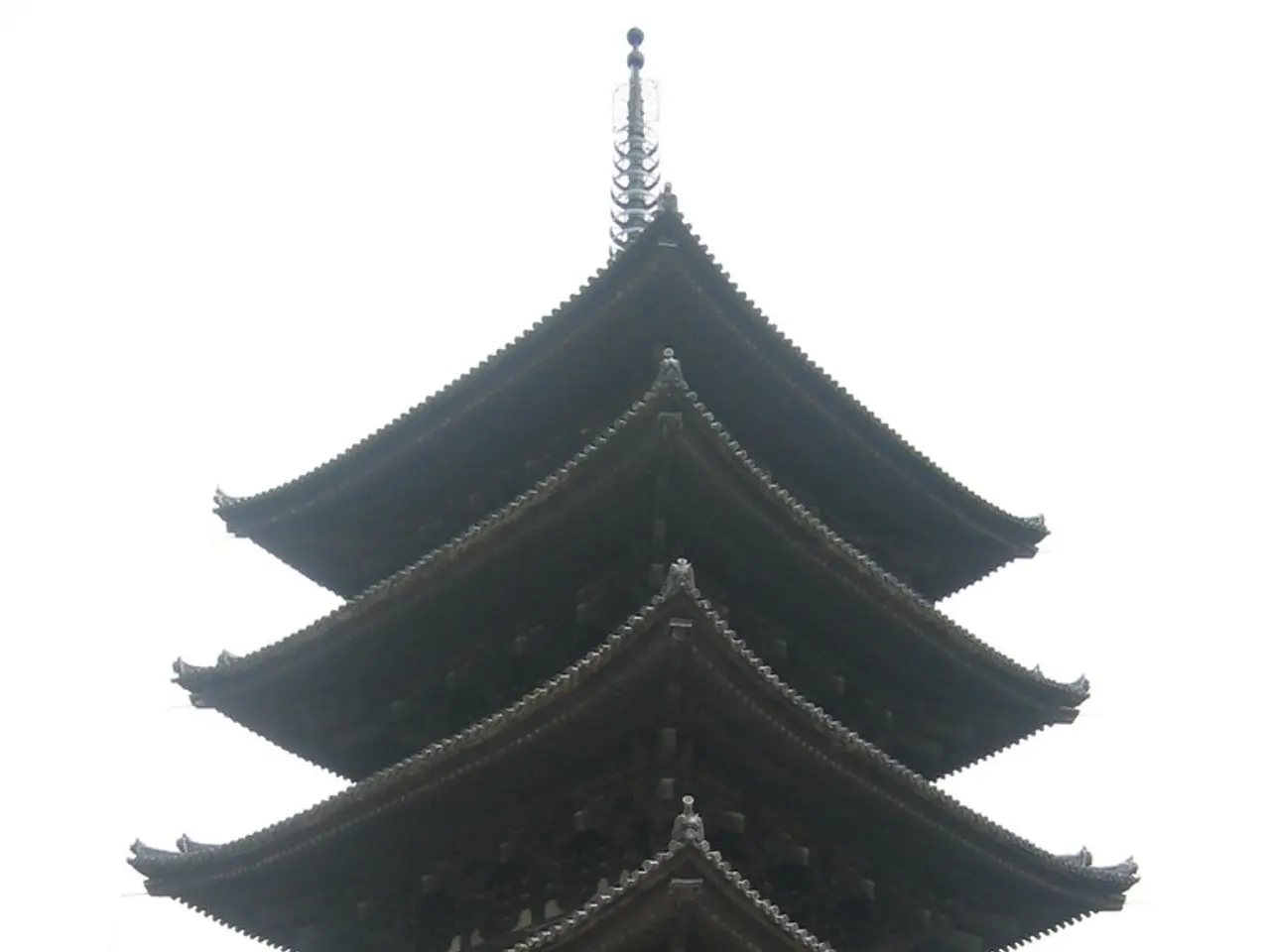Nvidia Requires Additional 300,000 H20 AI Chips from TSMC to Fulfill China's Demand, Yet Drawing Concerns from Certain Security Specialists
NVIDIA's H20 AI Chips in High Demand in China
NVIDIA, the American technology company, has seen a surge in demand for its H20 AI chips in China, following the resumption of sales after a White House ban that was in place since April 2025.
The lifting of the ban has made the H20 chip the only NVIDIA AI chip legally allowed to be sold and used in China, making it highly sought after by major Chinese tech giants like Tencent, ByteDance, and Alibaba.
The H20 chip offers sufficient performance for China's AI needs, although it offers about 20% of the computing power compared to NVIDIA’s international flagship H100 chip. It is optimized for high memory bandwidth and batch efficiency workloads, which are important for inference scenarios.
The H20 was purpose-built to comply with U.S. export restrictions while catering specifically to the Chinese market. This design focus allows the chip to meet China's unique technological and regulatory environment, enabling AI infrastructure development despite limitations on higher-end chips.
The demand for the H20 chips is so high that NVIDIA has ordered 300,000 more units from TSMC to keep up with the surging demand. The increasing adoption by leading Chinese companies and reports of grey-market activities emphasize the chip’s central role in China’s AI growth.
The recent flip-flop in U.S. export policy—from banning to resuming licensing for the H20—has created an urgent market dynamic. NVIDIA’s new orders indicate a recalibrated approach responding both to economic incentives and geopolitical developments in the U.S.-China AI competition.
However, NVIDIA still faces opposition from the US Department of Commerce for exporting H20 chips. The Trump administration believes that allowing NVIDIA to sell nerfed AI chips to China will keep Huawei and other competitors from gaining market share.
The ban reversal has received pushback from 20 national security experts, who believe it endangers the United States' economic and military edge in AI. The ban reversal followed negotiations with China regarding rare earth magnets, with both parties having a need for each other’s products.
Despite the challenges, NVIDIA's main goal is to make money, and continuing to miss out on the massive Chinese market has been a significant frustration. In a blog post announcing the resumption of H20 chips in China, NVIDIA's Huang stated that every civil model should run best on the U.S. technology stack.
Huang also expressed concern about non-American AI chips becoming the global standard, fearing that companies like Huawei could gain control. The April 2024 White House ban on selling H20 GPUs to China prompted Huawei to expedite production of its new AI chip, the 910C.
It could take up to nine months to get the supply chain for H20 chips rolling again. In the meantime, NVIDIA GPUs such as the A100 and H100 are being sold secondhand on a thriving Chinese repair market. The high demand for NVIDIA's H20 AI chips in China is driven primarily by its legal accessibility, adequate specialized performance for inference, design for export controls, significant demand from Chinese tech giants, and the evolving geopolitical environment.
- The surge in demand for NVIDIA's H20 AI chips in China is primarily driven by their legal accessibility, given the lifting of the White House ban.
- The H20 chip, the only NVIDIA AI chip legally allowed to be sold and used in China, is highly sought after by major Chinese tech giants like Tencent, ByteDance, and Alibaba.
- NVIDIA's H20 chips are essential for China's AI growth, as they offer sufficient performance for China's AI needs, despite having about 20% of the computing power compared to the international flagship H100 chip.
- The design focus of the H20 chip allowing it to meet China's unique technological and regulatory environment is a significant factor in its popularity.
- The increasing adoption of the H20 chip by leading Chinese companies has prompted NVIDIA to order 300,000 more units from TSMC to keep up with the surging demand.
- The geopolitical environment, with economic incentives and negotiations between the US and China regarding rare earth magnets, plays a crucial role in the resumption of H20 chip sales in China.




